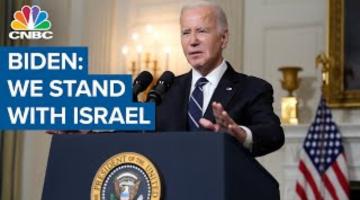The options for political representation are bleak - it may be better to say there isn't much of a choice at all. With Kamala Harris as the Democratic nominee, voters may have someone who presents a fresh face, but she is just a disguise for the same imperialist and exploitative empire.
Originally published in The Massachusetts Review.
In her acceptance speech for the DNC’s nomination, Kamala Harris promised to secure the nation’s borders and to advance U.S. security and values abroad. She assured voters that under her leadership, America will have “the strongest, most lethal fighting force in the world.” The expansion of US military bases in Africa through the AFRICOM program, alongside efforts to control energy and mineral resources in Sudan and Congo, are examples of what the most lethal fighting force in the world does. The record shows, in fact, that the U.S. consistently works to destabilize progressive governments and enable genocides. In a key moment of her speech, Harris reaffirmed the United States’ commitment to Israel, which means continuing to send weapons and funds to Netanyahu and the Likud to bomb Palestinian hospitals, schools, and homes.
For many people, Harris’s ascent to the top of the Democratic ticket rekindled a dying nationalist sentiment. Harris is a lively candidate. Unlike current president, Joe Biden, her age, race, and gender ostensibly rearrange the stultified political landscape and offers something believed to be better than the alternative. We are told, in more ways than one, that a Harris/Walz presidency is “the best way to fight fascism.” That Harris may offer something like an improved life for many U.S. Americans cannot be ruled out. In her speech, she promised an “opportunity economy where everyone has a chance to compete.” She declared that if presented with a bill to restore reproductive freedom, she will sign it into law. She pledged to protect the rights to vote; to “love openly and with pride;” to live safe from gun violence, and free from pollution. These positions are reassuring. It is understandable that millions would want to give her their vote.
But there are other critical concerns, espoused by would-be voters who remain uncommitted or are decidedly against the Harris/Walz ticket. These voters ask: How will Harris’s government go about materializing the promises she’s made? Does an opportunity economy empower unions, recognizing that, like capital, labor is transnational? Or will this government’s approach protect jobs for Americans by supporting the rank exploitation of foreign workers, including immigrants? Will addressing the housing shortage provide so-called affordable housing according to metrics that support corporate landlords? Is the promise of environmental protection to be realized through individual and corporate tax cuts for drivers of electric vehicles, while divesting from public transportation? In other words, is Harris promising the maintenance of a neoliberal status quo with a sheen of diversity? Liberal and progressive voices who find in Harris a reason once again to be proud Americans appear to be abandoning these uncomfortable questions.
The excitement about Harris’s domestic policies also reflects a willed oblivion among voters about how U.S. imperialism shapes domestic and global outcomes. Take Harris’s promises to “lower the cost of everyday needs.” Americans are afforded good lives because of U.S. imperialist exploitation of other peoples – the United States has a colonial relationship with foreign nations. While domestic goods are exported to provide the highest possible profit for U.S. corporations, tariffs are placed on foreign goods to protect U.S. industries and consumers. The inverse is hardly possible since U.S. corporations, supported by the government, often control and exploit natural and human resources abroad. Consider the environmental and human rights abuses of U.S. mining companies in the Democratic Republic of Congo. The minerals mined in the DRC find their way to Korean, Chinese, and Indian factories with abhorrent working conditions. Here, workers produce processors for smartphones sold by Apple, Google, and Samsung (a Korean corporation) to the U.S. American market. Surely, the people doing this labor are also deserving of good working conditions, affordable and adequate housing, healthcare, and freedom from pollution. How does America’s global leadership seek to address these issues?
It is worth noting, too, that the exploitation of natural and human resources by U.S. corporations does not only target foreign nations. The same government policies that back U.S. extractivism abroad also sustain it domestically. Fracking legislation and the expansion of oil pipelines pollute our waterways. Right-to-work laws undermine workers organizing for better labor conditions. To interrogate U.S. economic imperialism is to demand better for those at the heart of empire as well.
The current political hellscape presents us with a false choice – to either shut up and support empire, or to shut up and support empire dressed up in natural hair and a skirt. As Black lesbian feminist Pat Parker said in a speech presented at the Basta Conference (1980), “I do not wish to have the world colonized, bombarded and plundered in order to eat steak.” May we all espouse her resounding moral clarity.
ANIMA ADJEPONG is the author of Afropolitan Projects: Redefining Blackness, Sexualities and Culture from Houston to Accra, founder of Silent Majority, Ghana, a nonprofit that engages indigenous Ghanaian knowledge and collective organizing to champion queer freedom in Ghana, and Associate Professor of Women’s, Gender, and Sexuality Studies at the University of Cincinnati.



















